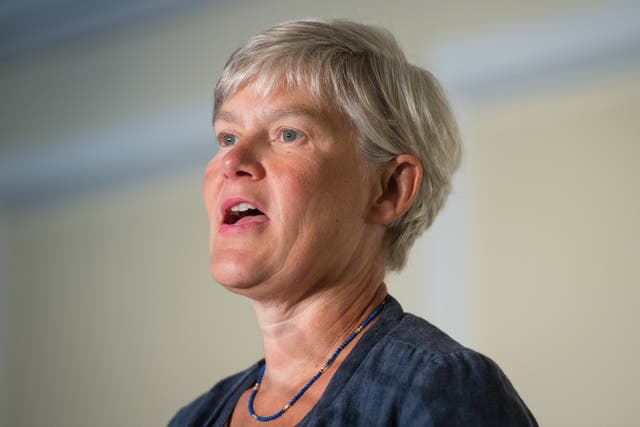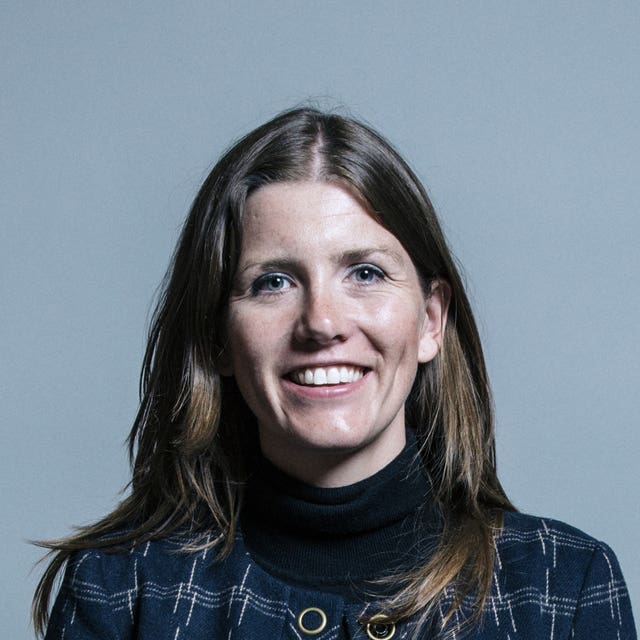Holocaust deniers will “never, never, never” be protected by the Government’s new freedom of speech laws, the Education Secretary has said.
Gavin Williamson issued a firm defence of the proposed Higher Education (Freedom of Speech) Bill, which would give regulators the power to fine universities or students’ unions in England if they fail to protect freedom of expression.
Labour had raised concerns over comments made by universities minister Michelle Donelan during a BBC Radio 4 interview, in which she was asked what impact the reforms would have on the ability of Holocaust deniers to speak on campuses.

Speaking during the Queen’s Speech debate, shadow education secretary Kate Green suggested that focusing on free speech in universities is “the wrong priority”.
She told the Commons: “Much more concerning though, the universities minister (Ms Donelan) was forced to admit on radio yesterday that this flawed legislation could have dangerous and troubling consequences – including potentially protecting Holocaust deniers.”
Intervening, Mr Williamson replied: “The universities minister never said that this would protect Holocaust deniers, and it wouldn’t protect Holocaust deniers because this party does not stand for anti-Semitism – unlike the party opposite.
“This party recognises that we need to eradicate anti-Semitism and racism of all its kinds and this legislation will never, never, never protect Holocaust deniers, because that is something that should never and will never be tolerated.”

Ms Green countered: “Anti-Semitism is intolerable in my party and in any organisation and in any part of this country, but I am very sorry to tell the Secretary of State that the legislation does appear to offer protection, potentially, to anti-Semites and Holocaust deniers.
“And the universities minister yesterday was not able to gainsay that.”
Labour MP Charlotte Nichols (Warrington North) said Ms Donelan “was explicitly asked if this would cover Holocaust denial, and she explicitly said that it would”.
Ms Nichols added: “This is appalling. There is no academic merit whatsoever in debate or distortion or denial of the Holocaust, and I hope (Ms Green) will agree with me that the Secretary of State should correct the record just then, because what he said has misled the House.”
Reading a transcript of the minister’s interview on Radio 4, Ms Green noted that, when asked whether a Holocaust denier would be invited to a university campus, Ms Donelan said “obviously it would depend exactly on what they were saying”.
Ms Green continued: “It never depends on what a Holocaust denier is saying.”
Intervening once more, Mr Williamson replied: “Let us be absolutely clear that this legislation will never protect Holocaust deniers. It protects free speech within the law.”
The Education Secretary continued: “We know that anti-Semitic activity and anti-Semitism are not to be tolerated. It is clear in the Equality Act passed in 2010 and we will never tolerate that, and this legislation will not allow Holocaust deniers to be able to spread their hate and misinformation on our campuses.”
Conservative former minister Sir Edward Leigh warned that the Higher Education (Freedom of Speech) Bill could have “unintended consequences” over how it is enforced, adding: “It’s down to the leadership of the universities and the schools to ensure free speech within reason.
“Free speech should be governed by good manners, it shouldn’t be governed by laws, and we should therefore protect free speech, and it’s down to headteachers and vice-chancellors to ensure this ridiculous platforming stops.
“I don’t want to get into the whole transgender issue but, just because you’re a well-known feminist writer who has made a few comments on transgender issues, you should not be barred from speaking at university.”
Opening the debate, Mr Williamson focused on the Government’s plan to offer a lifetime skills guarantee for access to education and training.
He insisted young people would not need to leave their hometown to find a rewarding career under the reforms.




Comments: Our rules
We want our comments to be a lively and valuable part of our community - a place where readers can debate and engage with the most important local issues. The ability to comment on our stories is a privilege, not a right, however, and that privilege may be withdrawn if it is abused or misused.
Please report any comments that break our rules.
Read the rules here